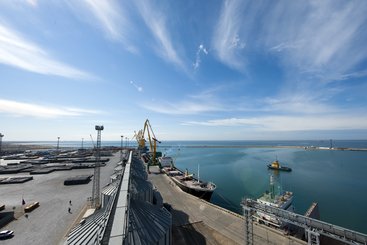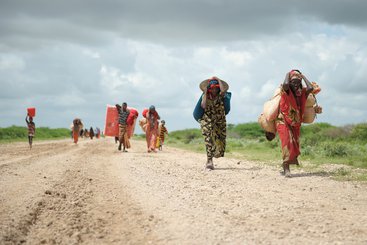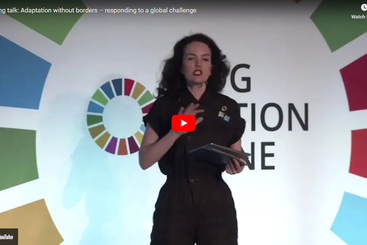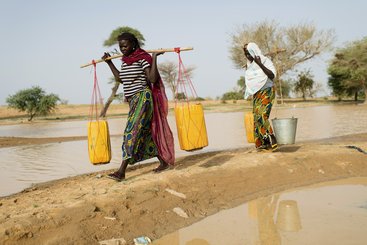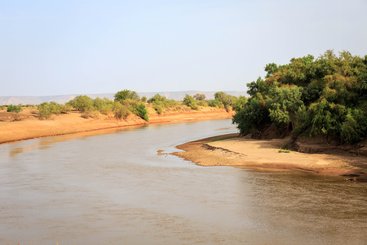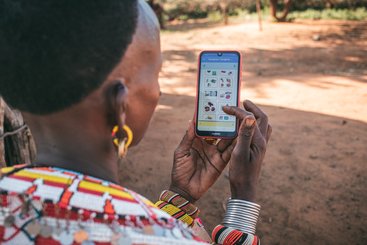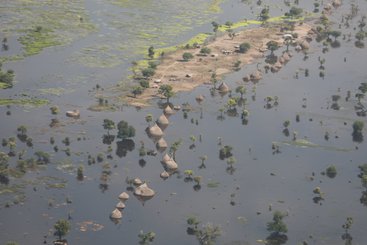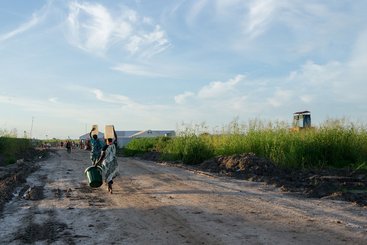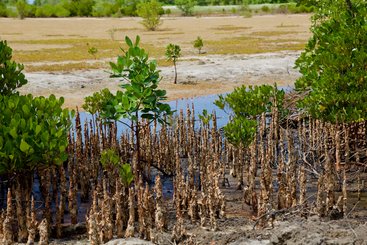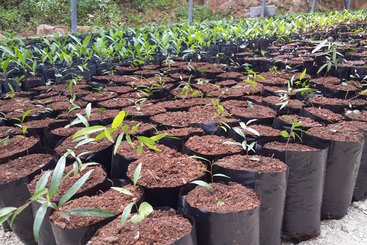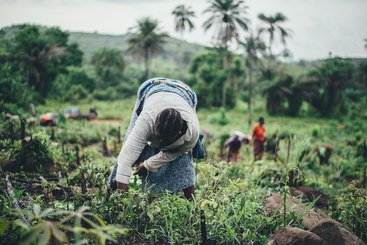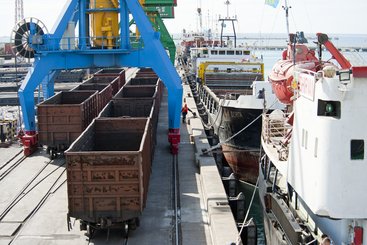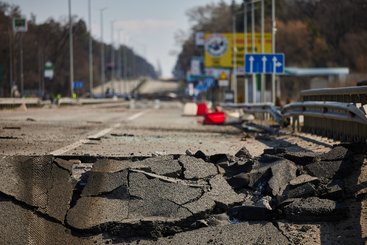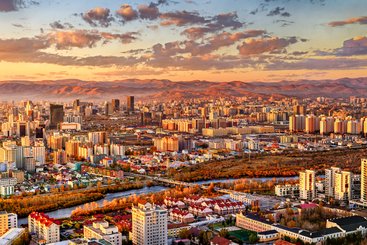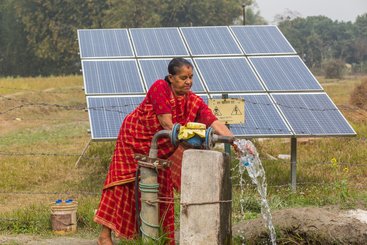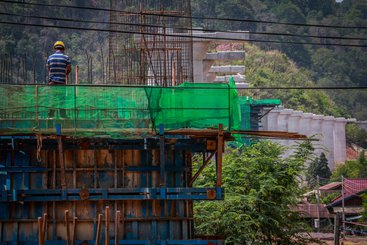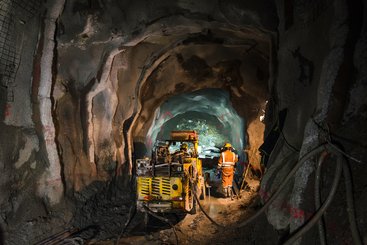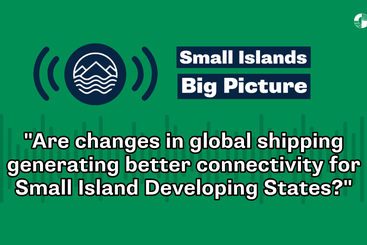
Jump to our work on:
- Climate risks and resilience
- Geopolitical risks
- More
What we do
New and emerging global threats, from climate change to pandemics, are more complex and interconnected than ever before. If not handled effectively, these risks could completely alter our socio-economic, environmental, peace and security systems.
ODI’s Global Risks and Resilience programme promotes risk-informed development. Our international team of experts work with policymakers and businesses across different sectors and countries: supporting them to understand risks, acknowledge trade-offs, and build resilience in a rapidly changing world.
Our risk-informed development (RID) approach assesses complex threats, and helps development decisionmakers to understand the risks, opportunities, uncertainties and options they face. This foundational report explains the importance of RID, and why “only resilient development can become sustainable development".
Featured work
Small Island Developing States (SIDS) Future Forum
Ahead of the Fourth International Conference on Small Island Developing States (SIDS4) in May, the SIDS Future Forum 2024 gathered together policymakers, researchers, development partners and community leaders to discuss – and develop solutions for – the urgent issues facing SIDS.
Recordings from both days, including the invitation-only roundtables, are available to watch on the Island Innovation website.
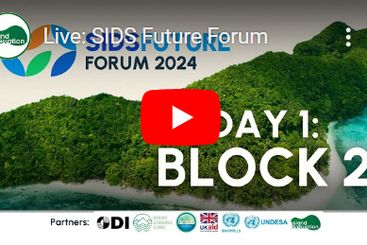
Understanding transboundary climate risks
Climate change does not respect borders, yet transboundary climate risks remain a neglected topic of research and policy. The Global Risks and Resilience programme pioneers research into understanding these risks, as well as the impacts and trade-offs that the adaptation and mitigation actions of one country can create for other countries. Our evidence is used to advise institutions, policymaking bodies and others on how to work together to reduce risks and more effectively build climate resilient development.
Supporting resilient Small Island Developing States
Small Island Developing States (SIDS) face unique climate challenges. ODI’s global advisory network, the Resilient and Sustainable Islands Initiative (RESI), works with SIDS and their partners to build more resilient economies and societies, and achieve climate justice.
Finance for resilience
Financing plays a key role in the implementation of international agreements on climate change, disaster risk reduction and sustainable development. Global Risks and Resilience focuses on the financial flows, mechanisms and tools which contribute to climate resilience and adaptation in the context of multiple risks. This includes looking at how to scale up finance flows to Small Island Developing States and fragile and conflict-affected countries: two groups which receive less adaptation finance than other developing countries despite their disproportionate vulnerability to climate change.
How can development partners support food security in protracted crises?
Between 2001 and 2021, international donors invested billions of dollars in an almost unparalleled effort to transform Afghanistan - yet studies have broadly concluded that the results were very disappointing. Using examples from Afghanistan, this SPARC report and accompanying policy briefs outline 10 traps that practitioners and donors working in fragile and conflict-affected regions must avoid if aid is to engage effectively with context. It is accompanied by five briefing notes, which cover village-level governance structures, informal credit, rural differentiation, engaging in markets and post-harvest storage and processing in Afghanistan.

Adapting to a changing climate
Global Risks and Resilience generates research and advises decison-makers on effective, inclusive climate change adaptation. This includes promoting locally led and gender-responsive adaptation work, and understanding how nature-based solutions can be a key part of more sustainable development in a changing climate.
The geopolitics of connectivity
Interconnectivity and globalisation have transformed the way the world works. But while these changes have brought many benefits, they have also created threats which cross national borders, and which give rise to complex risks. Global Risks and Resilience supports decisionmakers to better understand the risks, opportunities and uncertainties they face, and the options they have to make more informed development decisions.
Understanding energy transitions
The transition from fossil fuel dependence to a low-carbon world is critical; it will also be difficult. Global Risks and Resilience supports businesses and decision-makers to navigate energy security concerns and possible development trade-offs related to the energy transition, and to make sure that renewable energy systems are resilient to rapidly changing threats.
China 2049
How China views and responds to global risks has significant relevance to world affairs. With its wealth of China expertise, Global Risks and Resilience generates in-depth analysis of how the country is addressing global challenges and risks: going beyond day-to-day coverage to provide reports, commentary, training and bespoke advisory services to a wide range of stakeholders.
Follow our climate work
Follow us on Twitter to get our latest analysis on climate issues including adaptation, loss and damage, and more.
Our team
-

Rebecca Nadin
Director, Global Risks and Resilience programme
-

Adriana Quevedo
Senior Research Officer
-

Anna Locke
Senior Research Associate
-

Camille Laville
Research Fellow
